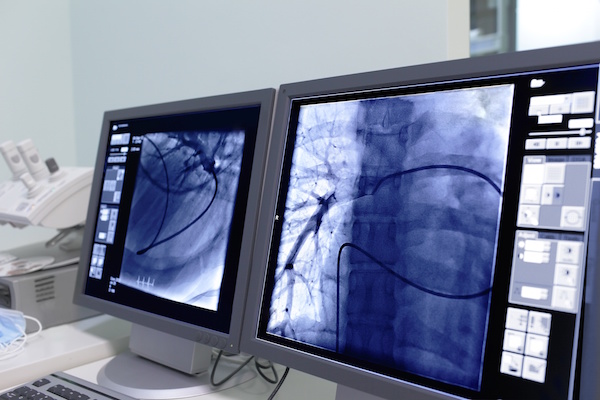WEDNESDAY, Feb. 1, 2017 (HealthDay News) — Even normal-weight women may be at greater risk for colon cancer if they have certain traits, such as elevated levels of blood fat, high blood sugar, high blood pressure and low levels of good cholesterol, a new study suggests.
Among older women of normal weight, those with so-called metabolic risk factors had a 49 percent increased risk for cancers of the colon, rectum and sigmoid colon (the lower part of the intestine connecting the rectum and colon) compared with healthy counterparts.
Current guidelines recommend colon cancer screening primarily based on a person’s age. But identifying at-risk individuals by their metabolic type could help prevent these cancers and catch them at an earlier stage, saving more lives, the study authors concluded.
The takeaway: “Know your own metabolic health, even if your weight is normal,” said Juhua Luo, the study’s senior author. She’s an associate professor of epidemiology and biostatistics at Indiana University Bloomington’s School of Public Health.
Candyce Kroenke, a research scientist at Kaiser Permanente Northern California and a study co-author, said the findings “further point to the need for better measures than BMI [body mass index] to assess health risks.” Body mass index is a rough estimate of a person’s body fat based on height and weight measurements.
The study involved normal-weight postmenopausal women, aged 50 to 79.
It’s reasonable to suspect that the findings may apply to men or younger women, too, Luo said. “But we would need additional study to answer this for sure,” she added.
Dr. Andrew Chan is a gastroenterologist and associate professor of medicine at Harvard Medical School in Boston. He agreed that the findings suggest that other factors beyond weight may be independently associated with colon cancer.
“It’s really hard to prove cause and effect with this type of study, but it does raise some interesting questions,” said Chan, who wasn’t involved in the research.
Excluding skin cancers, colon cancer is the third most common cancer diagnosed in women and men in the United States, the American Cancer Society says.
The “absolute” risk of developing colon cancer over a specified period of time varies by age, sex and other risk factors. The U.S. Centers for Disease Control and Prevention says a 50-year-old woman has a 2 to 3 percent chance of having colon cancer over the next 30 years. A 60-year-old male has a 4 percent chance of developing it over the same three-decade period.
While being overweight or obese is a known risk factor, few studies have examined colon cancer risk among people with unhealthy metabolic factors, especially in normal-weight individuals, the study authors noted.
Having “metabolic syndrome” means you have three or more of these traits: high blood pressure, high triglycerides (a type of blood fat), high blood sugar, low levels of good HDL cholesterol and a large waist measurement.
Thirty percent of normal-weight adults worldwide are believed to be metabolically unhealthy, according to lead study author Dr. Xiaoyun Liang of Beijing Normal University in China.
The research team’s analysis involved more than 5,000 women enrolled in the Women’s Health Initiative, a 15-year study led by the U.S. National Institutes of Health.
Women with a body mass index of 18.5 to less than 25 are considered normal weight. Someone who’s 5 feet 6 inches tall and weighs 142 pounds would have a BMI of about 23, according to the CDC.
One-third of the women in the study were deemed metabolically unhealthy, meaning they had two or more risk factors of metabolic syndrome. The researchers didn’t include waist measurement as one of the factors.
After adjusting for factors that affect cancer risks, women with metabolic syndrome had more than a twofold higher risk of colon and rectal cancers compared with metabolically healthy women, the findings showed.
Why these women seem at higher risk isn’t clear. It’s possible that poor metabolic health may promote inflammation in the body that boosts cancer risk, the study authors suggested.
Chan said it’s becoming clear that risk factors for heart disease may overlap with risk factors for many types of cancer. “So I think that gives people an additional reason for really thinking about trying to maintain a healthy lifestyle,” he said.
More information
Learn more about metabolic syndrome from the U.S. National Institutes of Health.
Copyright © 2026 HealthDay. All rights reserved.

